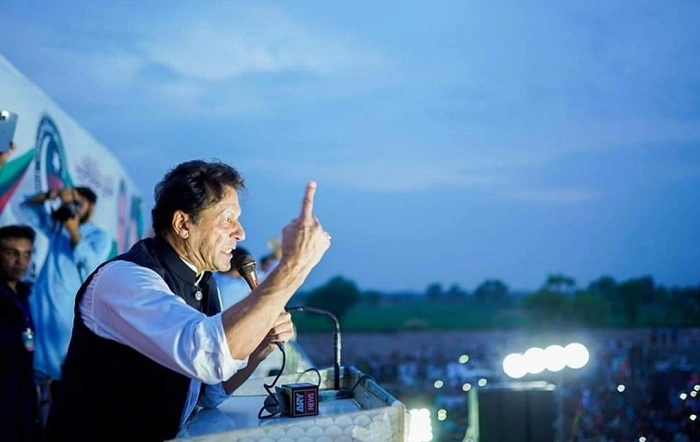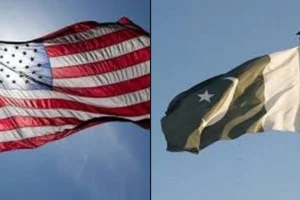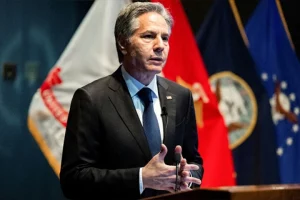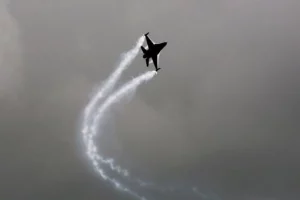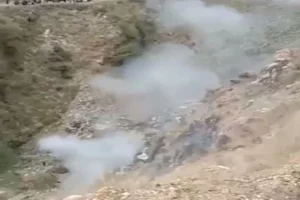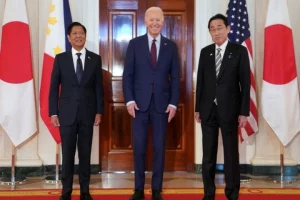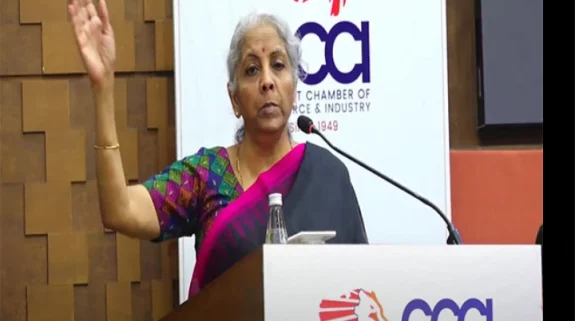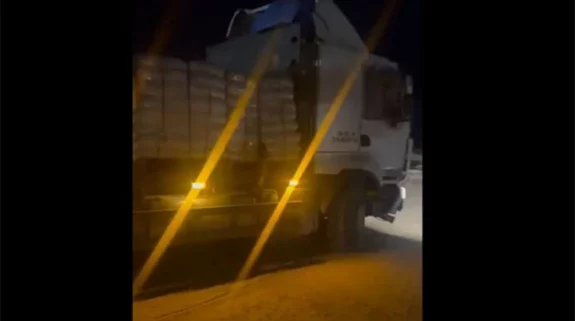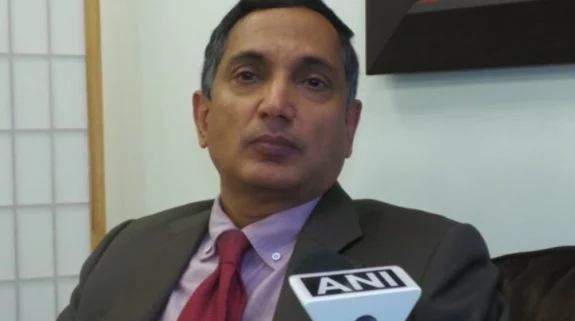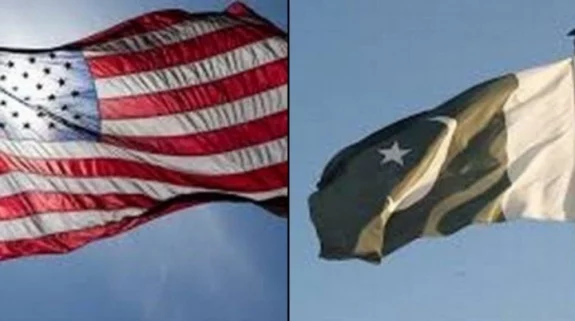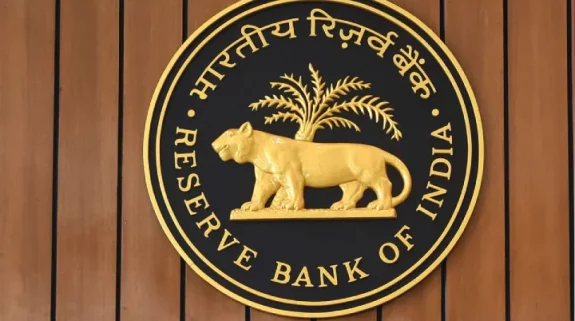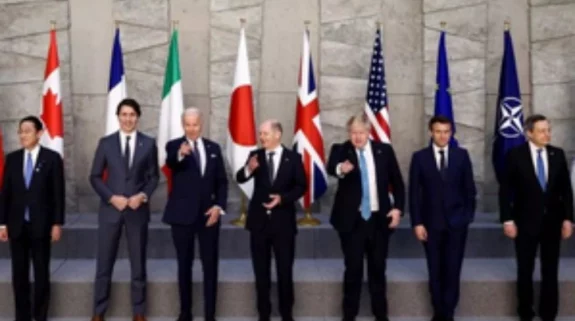The second phase of re-pivoting Pakistan has started, with the noose tightening around former Prime Minister Imran Khan who had the temerity to openly confront the Americans, cement ties with the Chinese and bond with the Islamists within and outside his country.
With a triple-whammy lurking in the shadows, Khan knocked on the door of the Islamabad High Court (IHC) on Monday for an anticipatory bail. The court granted him a three-day transit bail in a terrorism case. Nevertheless, the court asked him to approach the anti-terrorism court (ATC) — as it is the relevant forum in the case, News International reported.
On Sunday night, Khan’s arrest appeared imminent. A First Information Report (FIR) was filed against chairperson of the Pakistan Tehreek-e-Insaf (PTI) party under the Anti-Terrorism Act in Islamabad’s Margala Police Station.
Quite of a charged crowd, mostly families here at Bani Gala, very near to the residence of the former PM Imran Khan as rumours/reports make rounds of his possible arrest. #Pakistan pic.twitter.com/9PjGVUR5AK
— Anas Mallick (@AnasMallick) August 21, 2022
The report was filed in response to the address delivered by Khan on Saturday where he threatened Islamabad Police’s inspector general (IG) and deputy inspector general (DIG), and Additional Sessions Judge Zeba Chaudhry with legal action.
Ms. Chaudhry had earlier ordered physical remand of Shahbaz Gill, Khan’s chief of staff who has been arrested for making seditious remarks targeting the Pak military during an appearance on ARY television.
“IG, DIG Islamabad, we will not spare you! We will file cases against you” Khan asserted. “Magistrate Zeba Chaudhry, we will not spare you too!” the mercurial PTI head stressed.
Khan’s possible arrest is part of the big picture, in which Army Chief Javed Qamar Bajwa is playing a lead role.
-After getting bruised by #China, #Pakistan is cozying up to #USA
-Proposes to dissolve CPEC Authority due to its poor performance
–#Pakistani COAS Gen #Bajwa meets Centcom chief Kurilla
-Earlier Bilawal Bhutto Zardari visited US pic.twitter.com/IqMJcxJd5T— Insightful Geopolitics (@InsightGL) August 20, 2022
Led by Bajwa, Pakistan has taken concrete steps to rebuild ties with the US-led West, undoing the “damage” caused by Khan who had gone out of his way to court China. Bajwa is cultivating the West by addressing western concerns in two theatres—Afghanistan and Ukraine. But that is only part of the story. In return, the Pakistanis want a critically important IMF loan, exit from the Financial Action Task Force (FATF) grey list and a possible recalibration of US policy in South Asia.
With the Taliban 2.0 unfurling Pashtun nationalism and openly challenging Pakistan territoriality, Islamabad has every reason to target the new rulers of Afghanistan. Here Pakistani interests converge with that of the Americans, who are hellbent on weakening the Taliban as punishment for masterminding Washington’s unceremonious exit from Afghanistan, when the group took control of Kabul on August 15 last year.
Given their common animosity towards the Taliban, for different reasons, it would not be surprising if the Pakistanis collaborated with the Americans to kill international terror icon Ayman Al Zawahiri in Kabul. Zawahiri’s targeting at a safe-house whose custodianship can be traced to interior minister Sirajuddin Haqqani has delivered a body blow to the Taliban, who had been campaigning that they were no longer sheltering terrorists. Consequently, Taliban’s efforts to gain international recognition and access $7 billion in frozen funds with US support have also taken a big hit.
According to report Zawahiri’s killing alters Kabul chessboard
Reportedly Afghan Talibans are not happy with Pakistan
Islamabad apprehends hard times ahead for Kabul pic.twitter.com/eIAysgRUfq
— OsintTv📺 (@OsintTv) August 22, 2022
Bajwa’s effort of docking Pakistan in the western camp was further advanced when Islamabad sided with another top US priority—Ukraine. According to the website Newsday Express, Britain’s Royal Air Force has been operating almost daily flights deploying C-17 Globemaster aircraft from Romania to Noor Khan airbase in Rawalpindi, since earlier this month. The website says that a flight tracking website reveals this data. The portal claims that Pakistan has more than 320 Ukrainian T-80UD tanks. Pakistan has deployed retired military officers as envoys to Kyiv for more than a decade.
Bajwa’s game is likely to end with the triumphant return of pro-west former Prime Nawaz Sharif from exile in London, adding weight to the anti-Khan Pakistan Democratic Movement (PDM), paving the way for elections.
But before this plan of firmly implanting a pro-western government in Islamabad and reworking the “deep state” can be concluded, some major spring cleaning at home is required. Here Imran Khan and the eco-system of support that he has built in civil society has to be weakened if not decisively impaired to achieve total success.
Unsurprisingly, with Bajwa making a headway in the West, the knives are out and are ready to strike at Khan’s jugular.
Though Khan may have got a 3-day reprieve, the odds are heavily loaded against him. On Monday, Shahbaz Gill, a PTI insider known to be close to the former Prime Minister, has been sent to a two-day physical remand by a district and sessions court in Islamabad.
Where is Shahbaz Gill ?
Retweet 💯🇵🇰#HaqDo_Karachi_March Where is Shahbaz Gill #Releasejameelfarooqui #عمران_خان_ہماری_ریڈ_لائن Asia Cup 2022 Chawal pic.twitter.com/ljWDUxNGOv— AHSAN KHAN 🇵🇰 (@ahsankhan0111) August 22, 2022
Gill has been charged with sedition for attacking the military during a telephonic comment aired by ARY television. The prosecution asserted that these comments are Imran Khan’s brainchild, and Gill has merely relayed them on air.
A script was prepared under Imran Khan’s supervision and was propagated by Shahbaz Gill on ARY news, which was complicit in the whole saga, to create rifts between ranks of the state institution. Gill has been arrested on account of sedition charges according to the law. (1/2)
— Rana SanaUllah Khan (@RanaSanaullahPK) August 9, 2022
Last week during a press conference, Pak interior minister Rana Sanaullah made his intention plain of linking Gill’s “seditious” comments to Khan. “A script was prepared under Imran Khan’s supervision and was propagated by Shahbaz Gill on ARY news, which was complicit in the whole saga, to create rifts between ranks of the state institution. Gill has been arrested on account of sedition charges according to the law,” tweeted Sanaullah.
Also Read: After Zawahiri’s killing, Bajwa leads from the front to dock Pakistan in the western camp






